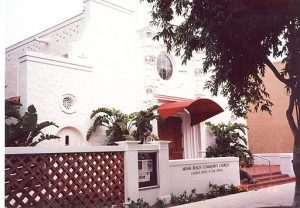Miami is one of the least affordable housing markets in the country. Despite a glut of housing units on the market and more set to come online, affordable housing is not very prevalent in Miami’s working-class neighborhoods. But there is one unique solution to the affordable-housing shortage in these areas: replace old churches with homes.
That was an idea floated by panelists at “The State of Black Miami” forum held in early April. It was there that Miami-Dade Commissioner Barbara Jordan said rarely-used churches are taking up precious land in overcrowded, housing-deficient neighborhoods, according to the Miami Herald.
“I don’t want to offend any pastors we have out there. But we have too many churches and not enough beds,” Jordan said, according to the Herald. “When you count the number of churches where the doors are closed and it meets twice a month, that is not a church that is really serving the community. It’s taking dollars off the tax roll.”
Gentrification an issue
With Miami’s ascent into a global destination, gentrification has taken hold in some working-class areas like Wynwood. Those forces have made the existing housing in those areas more expensive, and not enough new housing is being built to combat the trend. Consider that 75 percent of lower and middle-income residents were cost burdened in 2015, meaning they spent more than 30 percent of their monthly income on housing. That figure has nearly tripled since 2000.
Commissioner Jordan and others have tried to tackle the problem, including a proposed law that would require developers to include affordable housing in their projects or pay into an affordable housing fund. That was successfully defeated by developers in late 2016, according to the Miami Herald.
Density restrictions and other zoning regulations restrict how many new units can come to working-class neighborhoods. To allow for more housing, the city will likely have to grant easements on its zoning laws to allow for taller structures with less available parking, and will have to expand municipal infrastructure to accommodate the prospective development, experts have said.
Better utilization of existing land in those communities is also a way forward. It could also expand the tax base, Jordan said.
“If we’re having a church that’s really engaged in communities, and truly making a different in delivering what we’re supposed to be delivering, I’m for churches 100 percent,” she said. “But not just for the purpose of taking dollars off of the tax [roll].”
Photo by Dtobias (Own work) [CC BY-SA 3.0 or GFDL], via Wikimedia Commons

